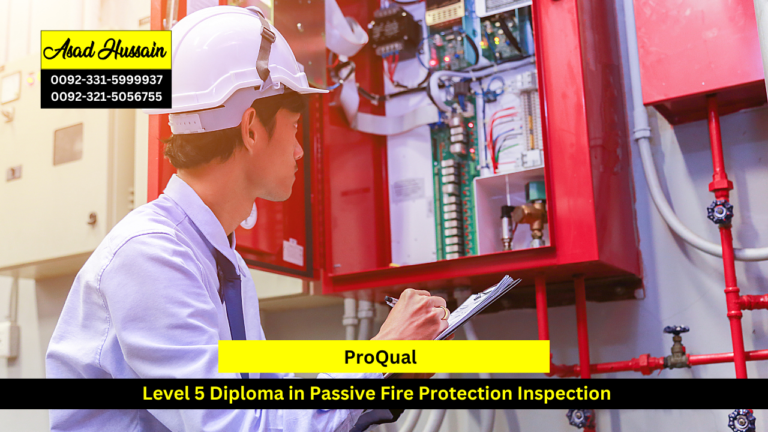The ProQual Level 6 Diploma in Hostile Environment Operations & Close Quarter Battle represents the pinnacle of applied tactical certification for security professionals. Achievement of this diploma formally recognises an individual’s expert-level proficiency in both the strategic oversight of hostile environment operations and the execution of specialised CQB techniques, setting the benchmark for elite operational readiness.
This advanced professional diploma is designed for experienced security and tactical operatives preparing for or engaged in high-risk environments. It delivers a rigorous assessment of the strategic knowledge and practical competencies required to plan for, operate within, and manage dynamic threats in challenging and hostile settings. The course focuses on integrating advanced tactical decision-making with specialised close-quarter battle (CQB) skills under pressure.
The curriculum is centred on elite operational standards, requiring candidates to demonstrate mastery through practical scenarios, detailed operational planning exercises, and performance under simulated stress. Key areas of focus include threat assessment, mission planning in hostile territories, advanced firearms handling, tactical movement in confined spaces, and immediate action drills for complex, close-range engagements. This intensive program validates an operative’s capability to lead and survive in extreme conditions.
Program Highlights
Study Units
he ProQual Level 6 Diploma in Hostile Environment Operations & Close Quarter Battle, achieve the qualification candidates must achieve all of the mandatory units
| Unit Title | Unit Level |
| Engaging in close quarter battle in a hostile environment | 6 |
Entry Requirement
Admission to the ProQual Level 6 Diploma in Hostile Environment Operations & Close Quarter Battle is restricted to experienced professionals who meet stringent criteria:
- Age & Status: Applicants must be at least 21 years of age and possess the legal authority to participate in advanced weapons and tactical training, including background verification.
- Educational Background: While no specific academic degree is mandatory, holding prior professional certifications such as a Close Protection qualification, a recognised military leadership course, or a related security operations diploma is essential.
- Language Proficiency: Candidates must demonstrate exceptional proficiency in English to comprehend complex briefings, safety directives, and operational plans, and to communicate clearly and instantly under high-stress conditions.
- Work Experience: This is the absolute prerequisite. Applicants must provide verifiable, substantial professional experience in military, law enforcement, or high-risk private security roles, with proven exposure to operational planning and tactical firearms use.
Due to the advanced and sensitive nature of this program, all candidates will undergo a mandatory pre-enrolment assessment and vetting process to confirm their suitability, operational background, and readiness for the intense physical and psychological demands of the course.
Learning Outcomes
Upon completing the ProQual Level 6 Diploma in Hostile Environment Operations & Close Quarter Battle, you will be fully equipped with the expertise, confidence, and hands-on skills needed to operate in the most challenging and high-risk environments, excelling in both tactical operations and leadership roles.
- Master Hostile Environment Operations: Gain the ability to assess, plan, and execute operations in hostile environments, understanding the complexities of high-risk zones and how to mitigate potential threats.
- Apply Survival Skills in Extreme Conditions: Develop advanced survival skills, including navigation in hazardous terrain, emergency medical response, shelter construction, and water purification in remote or conflict-ridden areas.
- Execute Advanced Close Quarter Battle Techniques: Learn and practice advanced in ProQual Level 6 Diploma in Hostile Environment Operations & Close Quarter Battle such as room clearing, hostage rescue, dynamic entry, and combat shooting. You’ll gain proficiency in handling firearms and combat scenarios in confined spaces.
- Lead Effectively in High-Pressure Situations: Strengthen your leadership and decision-making skills, enabling you to lead teams confidently in stressful, life-threatening environments. Understand how to maintain control, manage morale, and make tactical decisions under duress.
- Understand Counter-Terrorism and Crisis Management: Develop a solid understanding of counter-terrorism strategies, high-risk operation protocols, and how to respond effectively to crisis situations, including terrorist attacks and insurgent threats.
- Enhance Situational Awareness and Threat Detection: Cultivate advanced situational awareness, allowing you to detect potential threats early and respond proactively. Learn to recognize hostile intent and apply preventive measures in various operational environments.
- Utilize Tactical Communication and Technology: Gain the skills to effectively use communication tools and technology in hostile environments, including secure communications, surveillance, and intelligence gathering to support operational success.
- Adapt to Real-World Scenarios and Field Exercises: Apply the knowledge gained through practical field exercises, simulations, and real-life scenario-based training. Build the confidence to operate in complex, unpredictable environments.
- Refine Critical Thinking and Problem-Solving Abilities: Develop critical thinking skills to make swift, strategic decisions in rapidly changing situations. Learn to solve problems effectively while considering operational objectives, risks, and safety.
- Achieve Professional Certification for Career Growth: Successfully complete ProQual Level 6 Diploma in Hostile Environment Operations & Close Quarter Battle, earning an internationally recognized certification that boosts your career prospects and demonstrates your ability to operate in high-risk environments with expertise and professionalism.
Target Audience
This elite-level diploma is designed for seasoned tactical professionals operating in or preparing for the world’s most demanding and high-threat environments. It is intended for individuals whose roles require the highest standard of strategic planning, threat mitigation, and close-quarters tactical proficiency. Specifically, this advanced qualification is for:
- Experienced Close Protection Officers (CPOs) operating in hostile regions who require advanced tactical and firearms skills.
- Military Personnel from special forces or infantry backgrounds transitioning into high-risk private security roles.
- Law Enforcement Tactical Team Members seeking to formalise and certify their advanced operational skill set.
- Private Security Contractors and Security Consultants tasked with planning and leading missions in high-risk areas.
- Maritime Security Operatives (e.g., counter-piracy) and Corporate Risk Managers responsible for personnel in hostile environments.
In essence, this diploma certifies the expert-level competency of professionals who must make critical decisions, command teams, and apply decisive force in complex, high-pressure scenarios to ensure mission success and survival.







